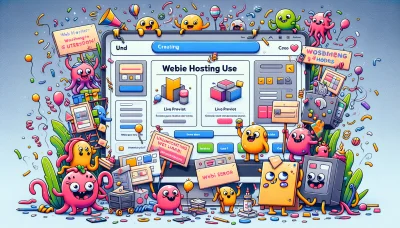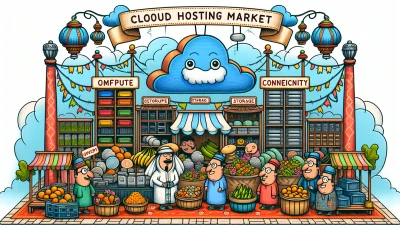Best website builder reddit Quiz
Test Your Knowledge
Question of
Best Website Builder Reddit: A Comprehensive Guide
Exploring the realm of website building, Reddit users have consistently highlighted a selection of tools renowned for their ease of use, flexibility, and comprehensive feature sets. This guide delves into the top website builders as recommended by the Reddit community, examining their key features, the benefits they bring to users, and the reasons behind their popularity on the platform. From drag-and-drop interfaces to advanced SEO tools, we uncover what makes these builders stand out in the crowded digital space and how they cater to the needs of both beginners and seasoned web developers alike.
Why Choose a Website Builder?
Choosing a website builder offers a multitude of advantages for individuals and businesses looking to establish or enhance their online presence. One of the primary benefits is the ease of use; these platforms are designed with the user in mind, ensuring that even those with minimal technical skills can create and manage a website. Additionally, website builders are cost-effective, eliminating the need for expensive web development services. They provide a wide range of templates and customization options, allowing users to design a site that truly reflects their brand or personal style. This combination of user-friendliness, affordability, and flexibility makes website builders an attractive option for creating a professional-looking website.
Top Website Builders According to Reddit Users
- WordPress - A versatile platform that's great for both beginners and professionals, offering extensive customization through themes and plugins.
- Squarespace - Known for its stunning, designer-quality templates and intuitive drag-and-drop interface, making it ideal for creatives.
- Wix - Offers a wide range of templates and a highly user-friendly drag-and-drop editor, suitable for those with no coding knowledge.
- Shopify - The go-to platform for e-commerce websites, providing powerful tools to build and manage an online store with ease.
- Weebly - A user-friendly option with drag-and-drop features and customizable templates, perfect for small businesses and personal sites.
Detailed Review of Each Website Builder
Wix
Wix is a highly popular website builder known for its drag-and-drop interface, making website creation incredibly easy for beginners. It offers a wide range of templates that are both attractive and mobile-responsive. Users have access to a plethora of customization options, allowing for a high degree of personalization. Wix also includes a variety of apps and features, such as social media integration, e-commerce capabilities, and SEO tools.
Pros: User-friendly interface, extensive template collection, excellent customization options.
Cons: The free version displays Wix ads, and the site migration feature is limited.
Pricing: Offers a free plan with premium plans starting at $14/month.
Squarespace
Squarespace is renowned for its sleek designs and professional templates, making it a favorite among creatives and small business owners. It offers an intuitive drag-and-drop interface, though with a steeper learning curve than Wix. Squarespace stands out for its high-quality design options, comprehensive blogging tools, and robust e-commerce features. It also provides strong SEO capabilities and mobile optimization.
Pros: Beautiful, high-quality templates, excellent blogging and e-commerce features.
Cons: Slightly higher learning curve, limited third-party integrations.
Pricing: No free plan, with premium plans starting at $12/month.
Weebly
Weebly is another popular option, especially for those looking to build an online store. It offers a straightforward drag-and-drop interface, along with various themes that are simple yet appealing. Weebly is particularly noted for its powerful e-commerce capabilities, including inventory management, shipping tools, and an in-site checkout process. It also provides SEO tools and lead capture features.
Pros: Easy to use, strong e-commerce features, decent selection of themes.
Cons: Themes are less customizable than competitors, and the platform has fewer overall features.
Pricing: Offers a free plan with premium plans starting at $6/month (when paid annually).
Shopify
Shopify is the go-to platform for online stores and e-commerce businesses. It excels in providing users with an extensive set of e-commerce tools, including inventory management, a robust checkout process, and integration with a wide range of payment gateways. Shopify also offers a vast app store, allowing users to extend the functionality of their sites. The platform is known for its scalability, making it suitable for businesses of all sizes.
Pros: Powerful e-commerce features, scalable, extensive app store.
Cons: More expensive than other website builders, primarily focused on e-commerce.
Pricing: Plans start at $29/month, with more advanced plans available for larger businesses.
WordPress
WordPress.org is a powerful, open-source website builder that offers unparalleled customization and flexibility. It's ideal for users who require advanced features and are willing to handle more complex site management tasks. WordPress has a vast plugin ecosystem, allowing for extensive functionality, from e-commerce to social media integration and beyond. It also offers thousands of themes for design customization. However, it requires hosting and domain registration to be arranged separately.
Pros: Highly customizable, extensive plugin ecosystem, large community support.
Cons: Steeper learning curve, requires separate hosting and domain registration.
Pricing: WordPress software is free, but hosting and premium themes/plugins are extra, with hosting typically starting around $3-5/month.
Comparison of Website Builders
| Website Builder | Features | Pros | Cons | Pricing |
|---|---|---|---|---|
| Wix | Drag-and-drop editor, 500+ templates, App Market, SEO tools | Intuitive interface, great flexibility | Can become pricey, templates not interchangeable after publishing | Free plan available; Premium plans start at $14/month |
| Squarespace | Beautiful templates, built-in SEO tools, social media integration | High-quality designs, comprehensive features | Learning curve, limited third-party integrations | Plans start at $12/month |
| Weebly | Drag-and-drop editor, SEO tools, e-commerce functionality | Easy to use, good for beginners | Limited design flexibility | Free plan available; Premium plans start at $6/month |
| Shopify | E-commerce focused, extensive app store, SEO and marketing tools | Best for online stores, great customer support | Can be expensive for small businesses | Plans start at $29/month |
| WordPress.com | Customizable templates, powerful editing tools, extensive plugin ecosystem | Highly customizable, great for blogging | Can be complex for beginners | Free plan available; Premium plans start at $4/month |
How to Choose the Right Website Builder for Your Needs
Choosing the right website builder is crucial for anyone looking to create a professional online presence. With so many options available, it can be overwhelming to decide which platform is the best fit for your individual needs and preferences. To make an informed decision, consider the following tips: First, assess the ease of use. A user-friendly interface can significantly streamline the website creation process. Next, evaluate the customization options. Look for a builder that offers a wide range of templates and allows for extensive customization to ensure your website truly reflects your brand. Additionally, consider the scalability of the platform. Your chosen website builder should be able to accommodate your site's growth over time, offering advanced features and functionalities as your needs evolve. Lastly, don't overlook the importance of reliable customer support and a strong community forum, which can be invaluable resources as you build and maintain your site.
Conclusion
In summary, selecting the appropriate website builder is a crucial decision that can significantly impact the success and growth of your online presence. This article has explored various options, each with its unique features and benefits tailored to different needs and skill levels. As you consider your choices, remember the importance of ease of use, customization options, pricing, and customer support. We encourage readers to carefully evaluate the options discussed to find the website builder that best suits their specific requirements, ensuring a robust and effective online platform.












